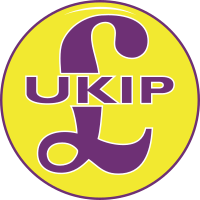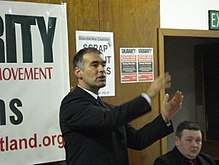List of political parties in Scotland
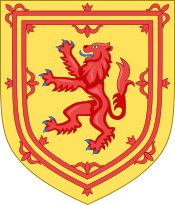 |
|---|
| This article is part of a series on the politics and government of Scotland |
|
Scottish Parliament Elections
UK General Elections
|
|
Intergovernmental Relations
Boris Johnson (C) Rishi Sunak (C)
Alister Jack (C)
|
|
Administration |
|
|
This article lists political parties in Scotland.
Parties with representation in the Scottish Parliament and/or the UK House of Commons
Other parties which contested the 2016 Scottish Parliament election
Local government
| Party | Logo | Date of foundation |
Leader | Ideology | Political position | Local authority | Councillors | ||
|---|---|---|---|---|---|---|---|---|---|
| Orkney Manifesto Group | N/A | 2013 | N/A | Rachael King | Localism Social liberalism |
Centre to centre-left |
Orkney Islands Council | 2 / 21 | |
| West Dunbartonshire Community Party | N/A | 2016 | N/A | Drew MacEoghainn | Socialism | Left-wing | West Dunbartonshire | 1 / 22 | |
| The Rubbish Party | 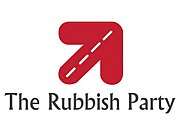 |
2017 | N/A | Sally Cogley | Localism Environmentalism |
N/A | East Ayrshire | 1 / 32 | |
Other parties
| Party | Logo | Date of foundation |
Leader | Ideology | Political position | ||
|---|---|---|---|---|---|---|---|
| Brexit Party |  |
2018 | _(cropped).jpg) |
Nigel Farage | Hard Euroscepticism Populism Right-wing nationalism |
Big tent Single-issue | |
| British Unionist Party | N/A | 2015 | N/A | John Mortimer | British unionism Scottish unionism Social conservatism Social democracy |
Syncretic[lower-alpha 2] | |
| Independent Green Voice | N/A | 2003 | N/A | Alistair McConnachie | Green politics Environmentalism |
N/A | |
| Pirate Party UK | 2009 | N/A | Harley James Faggetter | Pirate politics Civil libertarianism |
N/A | ||
| Scottish Family Party | 2019 | Richard Lucas | |||||
| Scottish Socialist Party (Stood as part of RISE – Scotland's Left Alliance in 2016). |
 |
1998 | N/A | Does not have a leader position (has spokespeople). | Democratic socialism Anti-capitalism Scottish independence Scottish republicanism |
Left-wing | |
| Scottish Unionist Party | 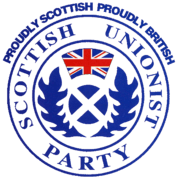 |
1986 | N/A | Daniel Houston | Scottish unionism British unionism Anti-Scottish Parliament |
N/A | |
| Independence for Scotland Party[1] | 2020 | N/A | Colette Walker | Scottish Independence | N/A | ||
Main political parties
The Scottish National Party (SNP) is the main political party in Scotland which supports Scotland becoming an independent nation. They are overall centre-left, advocating social democracy, nuclear disarmament and closer ties to the European Union. They were founded in 1934 and formed a permanent grouping in House of Commons in 1967. Their best election result in the 20th century was at the general election of October 1974 in which they won 11 of Scotland's 72 Westminster seats as well as around 30% of the popular vote, however they lost all but two of these seats in 1979. Support for the party was bolstered under the leadership of Alex Salmond, who in 2011 led the SNP to their best electoral performance to date, in which they became the first party in the devolved Scottish Parliament to win a majority of seats. They form the Scottish government, and are now led by Scotland's First Minister, Nicola Sturgeon. They have 62 Members of the Scottish Parliament (MSPs) and 47 Members of the Parliament of the United Kingdom (MPs).
The Scottish Conservative Party is the Scottish wing of the Great Britain-wide Conservative Party. It was founded in 1965 out of the merger of the Scottish Unionist Party, which had been a dominant political force in Scotland for much of the early 20th century, winning the majority of votes and seats in the 1955 general election. However the party went into decline, being reduced from 21 Scottish seats in 1983, to 10 in 1987. The 1997 general election was a catastrophe for the Scottish Conservatives, who were left with no Scottish seats whatsoever. However the party won 18 seats in the Scottish Parliament in the 1999 election due to proportional representation. Since 2001 the Conservatives have held 1 Scottish seat in the UK parliament. Like the wider UK Conservative Party, the party is a centre-right party, which promotes conservatism and British unionism. They currently have 31 MSPs, led in the Scottish Parliament by Jackson Carlaw and 6 MPs.
The Scottish Labour Party is the Scottish wing of the Great Britain-wide Labour Party. It was the most successful party in Scottish elections from 1959 to 2007. Like the wider UK Labour Party, they are centre-left and they promote British unionism. They first overtook the Conservatives as Scotland's largest party at the 1959 general election. In 1997, the UK Labour Party under Tony Blair offered Scotland a referendum on devolution which was passed with around 74% of the electorate in favour. From 1999 to 2007, they were in power in the Scottish Parliament through a coalition with the Liberal Democrats. From 2008-2011, the party was led by Iain Gray in the Scottish Parliament, who announced his resignation after the party's defeat at the 2011 Scottish election. Johann Lamont became leader in 2011 and resigned in 2014 after an internal dispute within the party. They currently have 1 MP and 24 MSPs. As of 2019 they are led by Richard Leonard MSP.
The Scottish Liberal Democrats are the Scottish wing of the Great Britain-wide Liberal Democrats party. It is a centrist, social liberal and British unionist party. The British Liberal Democrats they are part of were formed out of the old Liberal Party and the Social Democratic Party in 1988. Their leader is Willie Rennie. Since the formation of the Conservative-Liberal Democrat coalition at Westminster, support for the Liberal Democrats has fallen sharply, and the party won five seats at the 2011 Scottish parliamentary election. They also lost their Scottish MEP at the 2014 European Elections. They also lost 10 of their 11 House of Commons seats at the 2015 general election, with Deputy Leader Alistair Carmichael the only MP managing to keep his seat. They currently have 5 MSPs and 4 MPs.
The Scottish Green Party sit between the centre-left and the left-wing. The party promotes green politics, Scottish independence, Scottish republicanism, equality and radical democracy. It retains close ties with the Green Party of England and Wales and the Green Party in Northern Ireland, having all originated in the breakup of the UK Green Party. However all three parties are now fully independent. It won a seat in the Scottish Parliament in 1999, which was increased to 7 in 2003, and then reduced to 2 in 2007. The Greens retained both these seats in 2011. The Greens increased their number of MSPs at the 2016 Scottish election from 2 to 6. They currently have no MPs.
Unregistered parties
The following parties were not registered with the Electoral Commission as of 13 May 2019, and may be defunct:
Left-wing and far-left unregistered parties
- Communist Party of Great Britain (Marxist-Leninist)
- NO2EU (Great Britain-wide electoral alliance)
Right-wing and far-right unregistered parties
- Britain First (Great Britain-wide party)
Defunct and historical parties
Miscellaneous defunct and historical parties
- Crofters Party (1885–1890s)
- Adam Lyal's Witchery Tour Party (1999–2009)
- Highlands and Islands Alliance (established by 1999, inactive by 2001)
- Fishing Party (2003–2004)
- Publican Party (2005–2007)
Left-wing and far-left defunct and historical parties
- Scottish Labour Party (1888–1893)
- Independent Labour Party (1893–1975)
- Highland Land League (1909–1920s)
- Scottish Workers Republican Party (established in the 1910s, wound up after 1925)
- Communist Party of Great Britain (1920–1991)
- Fife Socialist League (1950s–1960s)
- Labour Party of Scotland (existed around 1973)
- Scottish Labour Party (1976–1979)
- Scottish Republican Socialist Party (1982–1998, joined the SSP and became the Scottish Republican Socialist Movement)
- Scottish Socialist Party (1987–1990)
- Scottish Militant Labour (1991–2001)
- Communist Party of Scotland (1992-?, Scottish party formed after collapse of the Communist Party of Great Britain)
- Left Alliance
Centre-left defunct and historical parties
- National Party of Scotland (1928–1934) Scottish nationalism, Scottish independence. Merged with Scottish Party to form modern SNP.
- East Dunbartonshire Independent Alliance (2004–2012)
Centre-right defunct and historical parties
- Scottish Unionist Party (1912–1965)
- Scottish Party (1930s) Scottish nationalism, Scottish independence. Merged with National Party of Scotland to form modern SNP.
- Scottish Enterprise Party (2004–2009, succeeded by the Scottish Democratic Alliance)
- Scottish Voice (2007–2012)
See also
Notes
- Most libertarian political parties, including this party, are broadly left-wing on social issues and right-wing on economic issues.
- The British Unionist Party is often seen as centre-left economically and right-leaning on social issues.
References
- Williams, Martin (29 July 2020). "New Scottish independence party explains game plan as logos are officially approved". Scotland Herald.
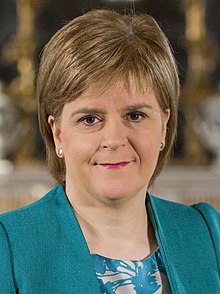
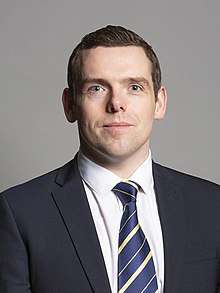
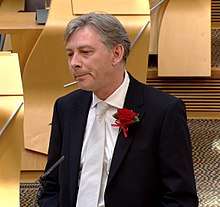
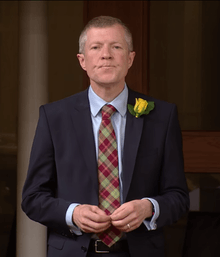

.jpg)
